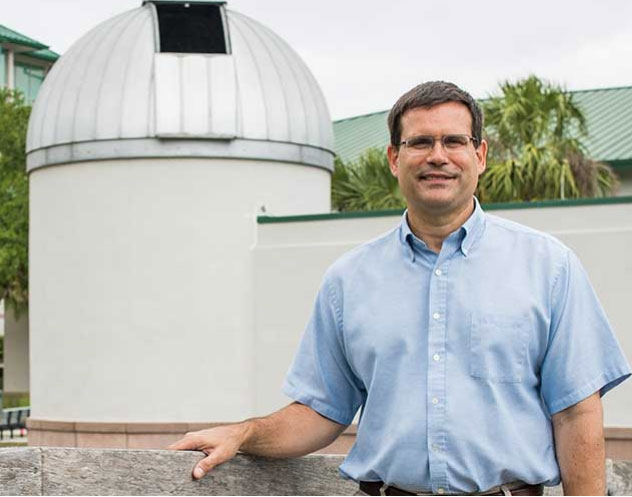The Whitaker Center’s Vision is One in Which All Students in K-20 STEM Educational Environments Are Actively and Collaboratively Engaged in Inquiry, Interdisciplinary Learning, and Research Experiences.
Goals and Guiding Principles
- Enhance and foster innovation, interdisciplinary activities, and research in science, technology, engineering, and mathematics education by providing support to faculty in professional development and scholarly activity related to the Whitaker Center Mission.
- Provide expertise in evidence-based teaching that engages students in meaningful science, technology, engineering, and mathematics experiences through support of model undergraduate research activities, specialized academic programs, and student organizations.
- Contribute to outreach activities in the local, regional, and national community that promotes public interest and support of science, technology, engineering, and mathematics education.
- Support K-12 educators in the pursuance of quality learner-centered science, technology, engineering, and mathematics education.
- Provide expertise in evaluative services for science, technology, engineering, and mathematics educational endeavors including internal and external research, projects, and initiatives.
Whitaker Eminent Scholar
 Dr. Derek Buzasi joined the Whitaker Center as Eminent Scholar in October of 2012.
Dr. Derek Buzasi joined the Whitaker Center as Eminent Scholar in October of 2012.
Derek received his undergraduate degree in physics from the University of Chicago, and his PhD in astronomy from Penn State University. He has worked at a variety of institutions, including the National Center for Atmospheric Research, Johns Hopkins University, the California Institute of Technology, and the University of California at Berkeley. Most recently, he served for ten years as Professor of Physics at the US Air Force Academy. Derek has published more than 120 papers, and has also worked on a variety of major instrument teams, including Detector Scientist for the Cosmic Origins Spectrograph, part of the Hubble Space Telescope's most recent upgrade, and Principal Investigator for the Wide-Field Infrared Explorer satellite. He currently serves on the Science Team for NASA's planet-finding Kepler mission.
Derek's research interests include almost anything having to do with stars. He began by studying various aspects of stellar (and solar) activity, such as spots, flares, and winds, and has done both observations and theoretical work, including radiative transfer modeling and magnetohydrodynamic models of stellar flux tubes. More recently, he has moved from studying stellar atmospheres and environments to studying stellar interiors and convection through the use of asteroseismology. Derek also works on computer modeling, particularly of nonlinear systems, and is co-author of the chapter on Computational Astrophysics in the CRC Computer Science Handbook.
Derek is also a reserve Navy Engineering Duty Officer with the rank of Commander; his current assignment is with Pearl Harbor Naval Shipyard in Hawaii. In his free time, he enjoys sailing, swimming, and reading, along with just hanging out with his wife Heather and son Grant. He has several research students in his research group and is always looking for ambitious students.
Opportunities to get involved
If you share a passion for teaching, learning, and/or its scholarship: email, call, or stop by the Whitaker Center for a visit. If you have an idea you want to explore related to STEM Education, we want to help you realize it.
Here are some areas where we might partner:
- Measuring student learning and/or teaching effectiveness
- Publishing research articles on STEM teaching and learning topics
- Coordinating your STEM education grants
- Evaluating your STEM education grants
- Consulting and observing your course design
- Coordinating K-12 or community outreach efforts
- Providing professional development in learning science K-20
- Planning other STEM related events
-
Guided by our mission
Toggle More Info -
Program Evaluation
Toggle More Info -
Leadership Team
Toggle More Info

